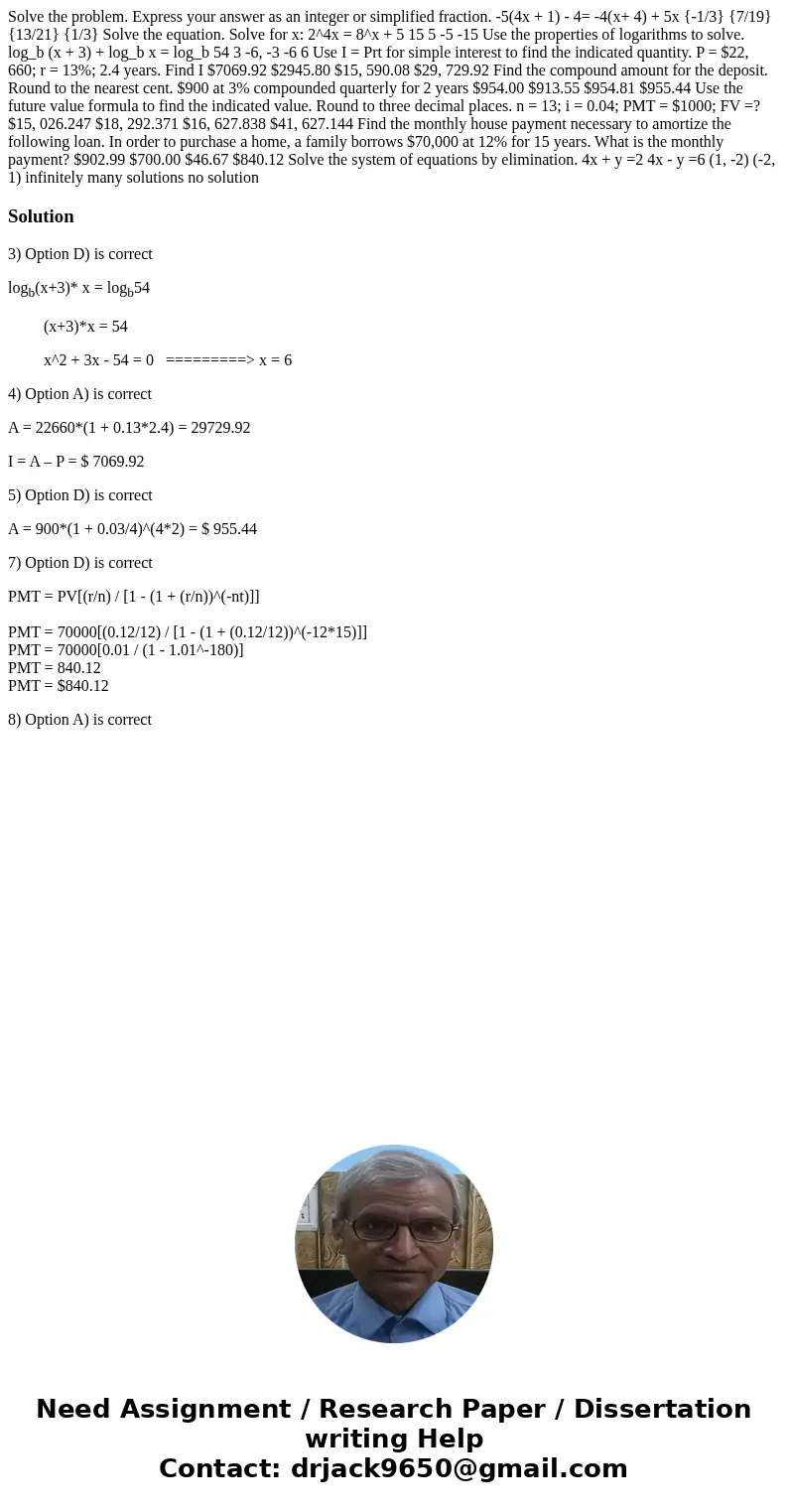Solve the problem Express your answer as an integer or simpl
Solve the problem. Express your answer as an integer or simplified fraction. -5(4x + 1) - 4= -4(x+ 4) + 5x {-1/3} {7/19} {13/21} {1/3} Solve the equation. Solve for x: 2^4x = 8^x + 5 15 5 -5 -15 Use the properties of logarithms to solve. log_b (x + 3) + log_b x = log_b 54 3 -6, -3 -6 6 Use I = Prt for simple interest to find the indicated quantity. P = $22, 660; r = 13%; 2.4 years. Find I $7069.92 $2945.80 $15, 590.08 $29, 729.92 Find the compound amount for the deposit. Round to the nearest cent. $900 at 3% compounded quarterly for 2 years $954.00 $913.55 $954.81 $955.44 Use the future value formula to find the indicated value. Round to three decimal places. n = 13; i = 0.04; PMT = $1000; FV =? $15, 026.247 $18, 292.371 $16, 627.838 $41, 627.144 Find the monthly house payment necessary to amortize the following loan. In order to purchase a home, a family borrows $70,000 at 12% for 15 years. What is the monthly payment? $902.99 $700.00 $46.67 $840.12 Solve the system of equations by elimination. 4x + y =2 4x - y =6 (1, -2) (-2, 1) infinitely many solutions no solution
Solution
3) Option D) is correct
logb(x+3)* x = logb54
(x+3)*x = 54
x^2 + 3x - 54 = 0 =========> x = 6
4) Option A) is correct
A = 22660*(1 + 0.13*2.4) = 29729.92
I = A – P = $ 7069.92
5) Option D) is correct
A = 900*(1 + 0.03/4)^(4*2) = $ 955.44
7) Option D) is correct
PMT = PV[(r/n) / [1 - (1 + (r/n))^(-nt)]]
PMT = 70000[(0.12/12) / [1 - (1 + (0.12/12))^(-12*15)]]
PMT = 70000[0.01 / (1 - 1.01^-180)]
PMT = 840.12
PMT = $840.12
8) Option A) is correct

 Homework Sourse
Homework Sourse